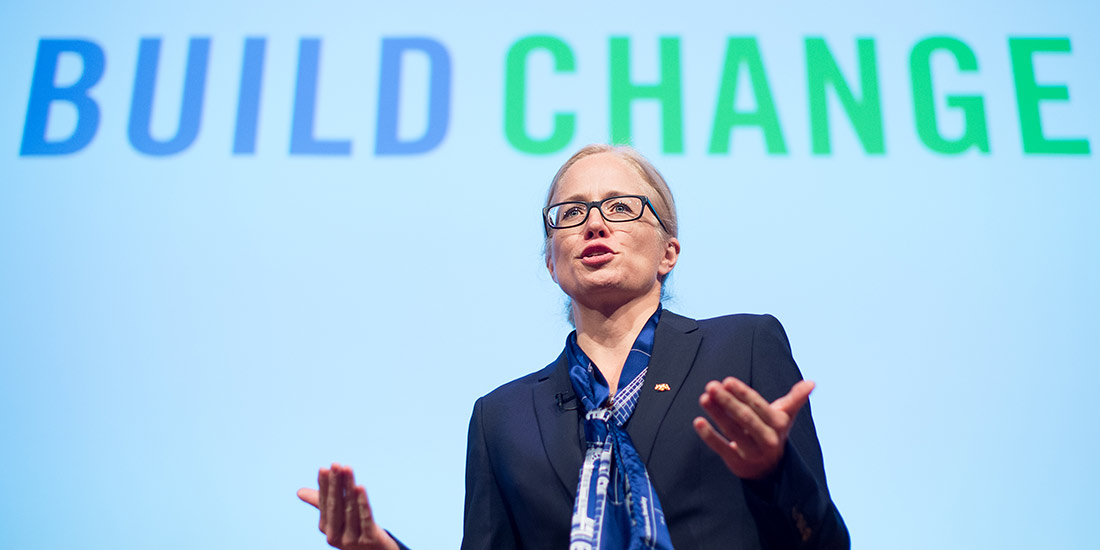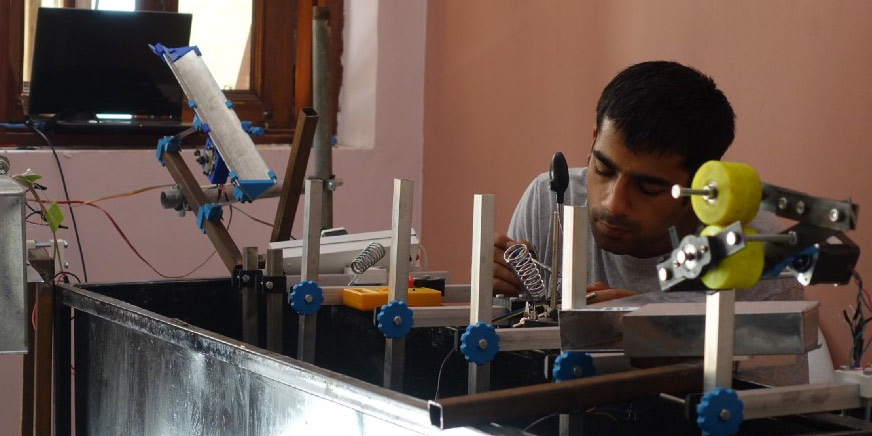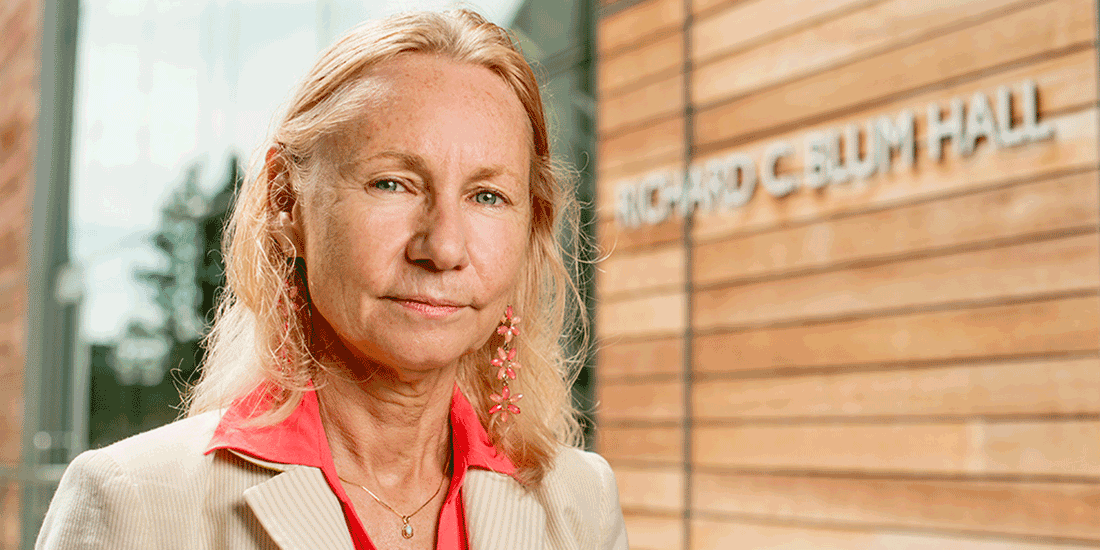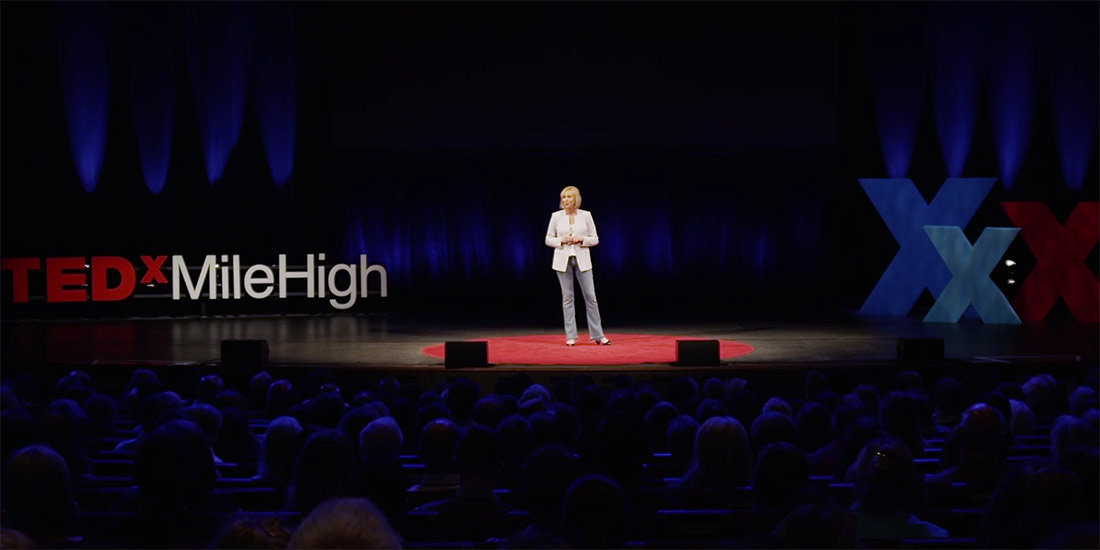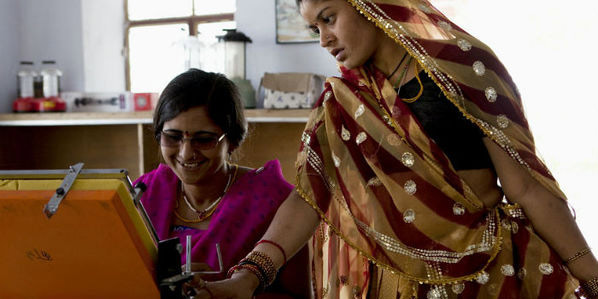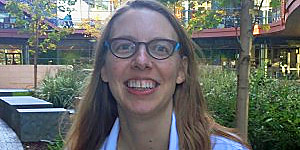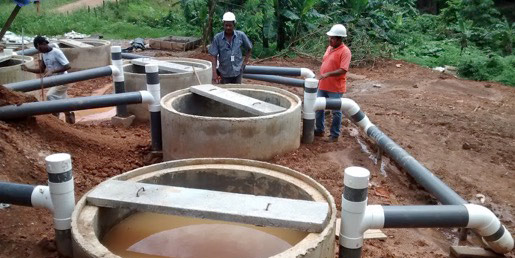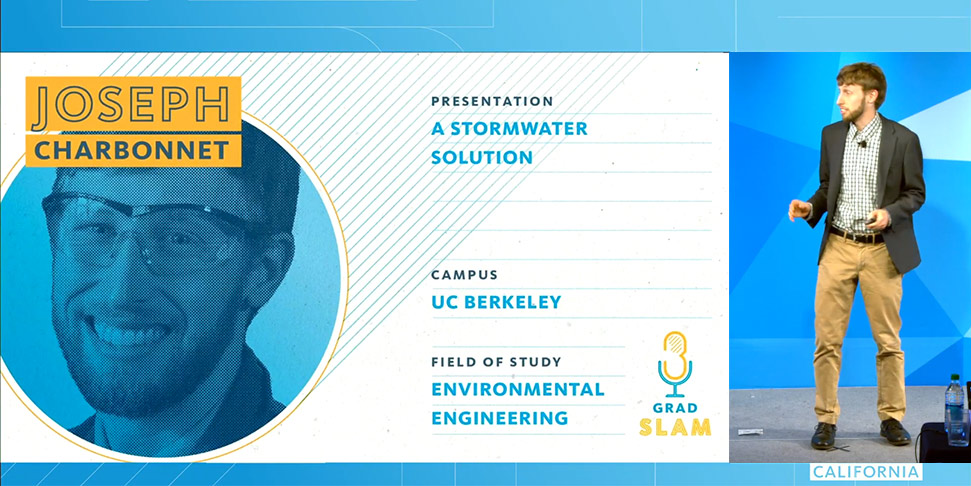
Berkeley water engineer lands 2018 ‘Slammy’
05/04/18 Graduate Division — At the UC-wide Grad Slam competition on May 3, environmental engineering doctoral student Joseph Charbonnet brought home the first-place ‘Slammy' - and $9,000 in prize money - for his three-minute talk on using manganese-coated sand to capture, clean and re-use stormwater.




